
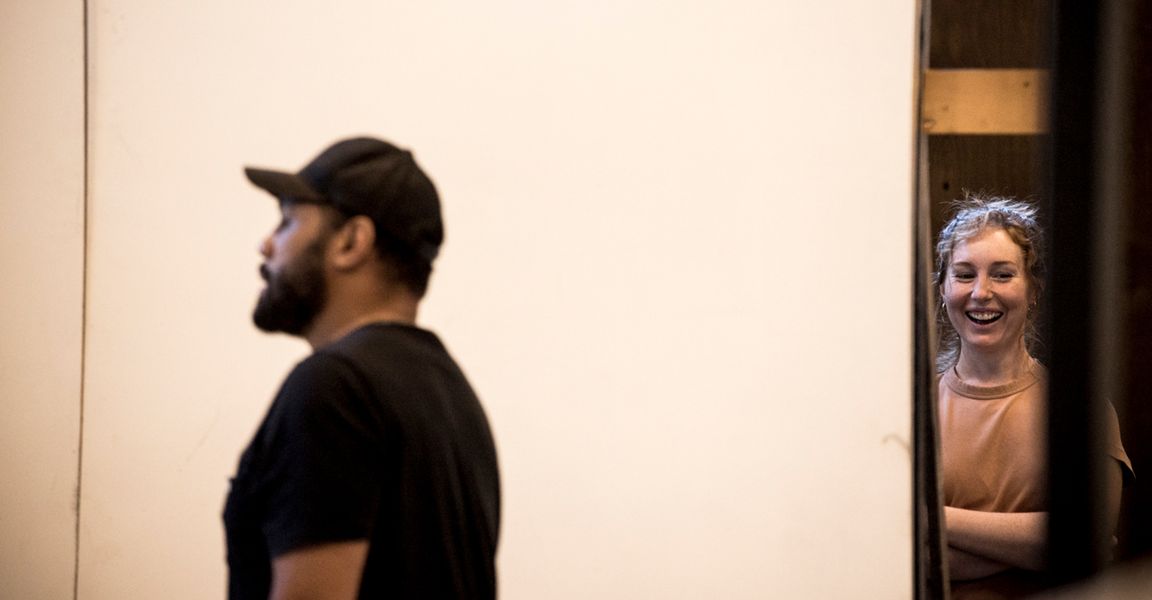

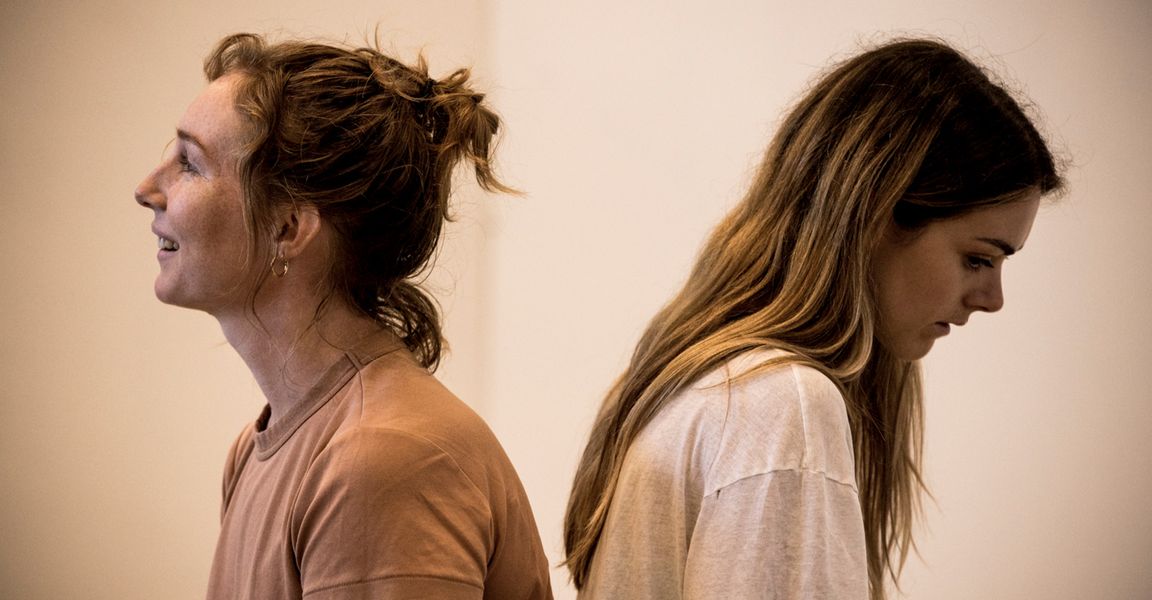
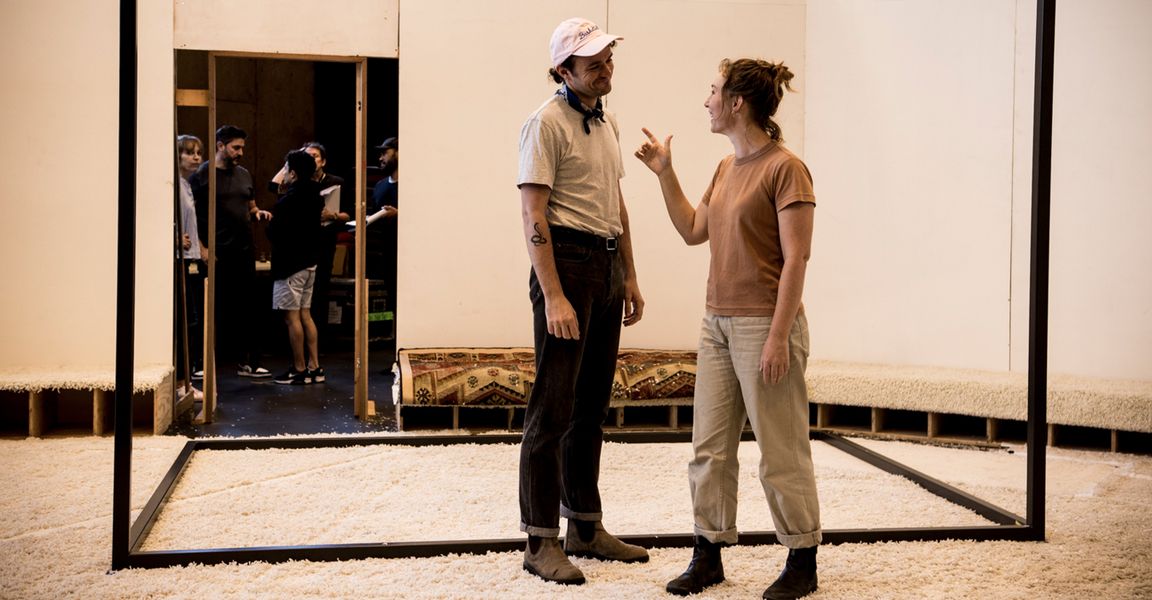


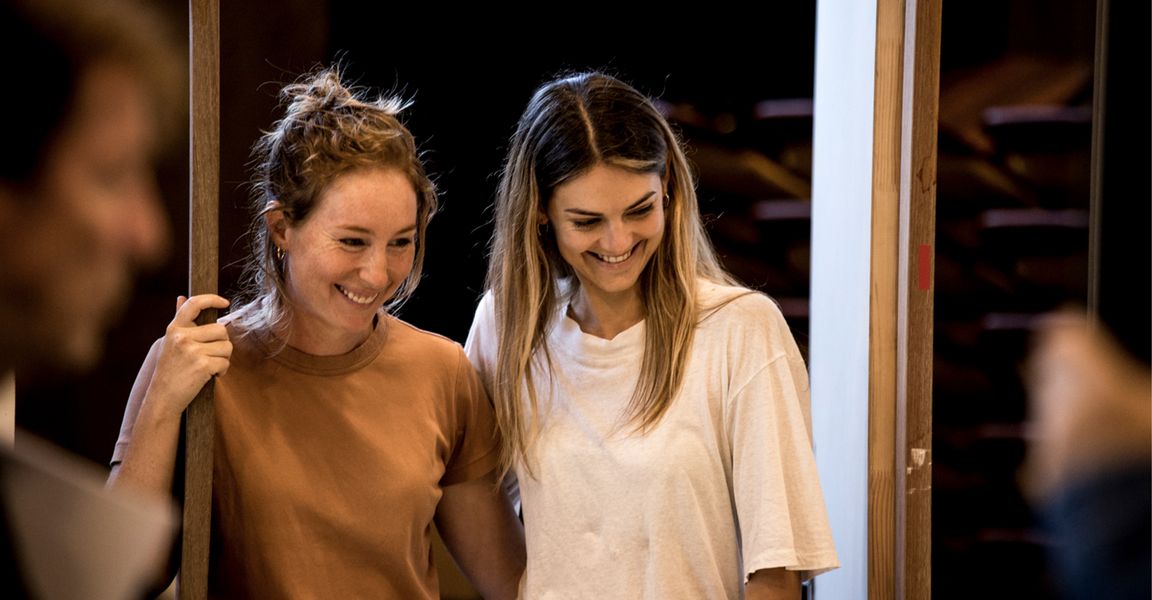

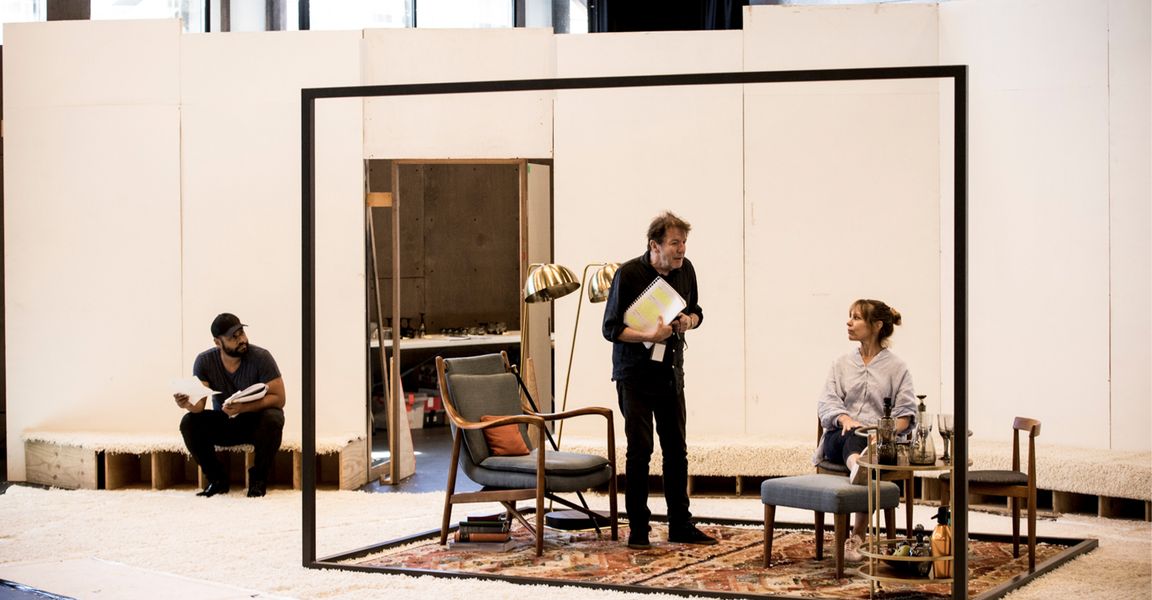
A handy guide to bluffing your way through
A quick flick through Hamlet
To flee or not to flee? Surely that is the question when faced with the ghost of your dead dad.
Our hero, Prince Hamlet, encounters the ghost of his father (the recently deceased King of Denmark) one frosty night in Elsinore castle. The King has only been dead five minutes but already his brother, Claudius, has moved in on his missus, moved into his fortress, and helped himself to the crown.
The ghost reveals to Hamlet that he was murdered by Claudius. And it gets worse: now it’s up to Hamlet to seek revenge.
Around court, Hamlet feigns madness to test the veracity of the ghost’s accusations. But when Hamlet rejects his lover, Ophelia, and then inadvertently kills her dad, the insanity act starts looking all too real.
Our princely protagonist puts on a play (within our play) to provoke Claudius into a confession. And it looks like it might just work. But – ever the over thinker – Hamlet fluffs his lines and fails to kill Claudius when he has the chance, and Claudius exiles Hamlet to England.
While overseas, Hamlet survives one assassination attempt before discovering his Uncle Claudius plans to have him murdered with a poisoned rapier or poisoned wine. Pick your poison. Hamlet returns home to hear that his stricken ex, Ophelia, has died and her brother Laertes is spoiling for a fight.
Matters reach a bitter and bloody end. Hamlet’s mother accidentally drinks poison while watching her son fencing with Laertes, and Hamlet is cut by a poison rapier. But Hamlet prolongs his death throes long enough to take Laertes and Uncle Claudius down with him. Denmark’s resulting power vacuum is swiftly filled by foreign invaders.










Hamlet character lowdown
Prince Hamlet Riddled with self-loathing and self-doubt. Not a great combination at the best of times but these, for Hamlet, are the worst of times. Enduring a university holiday from hell, where he feels like he’s the only person mourning his dead father.
King Claudius Pretty much the exact opposite of his nephew Hamlet, Claudius is ruthless and efficient. Previously jealous of his brother’s kingdom and his brother’s wife – so he killed his brother, married his wife and became king. Job done.
Queen Gertrude After her hubby died, Gertrude took pragmatism to new levels by immediately marrying her brother-in-law, Claudius. Her son, Hamlet, is understandably appalled.
Ophelia A young, naïve noblewoman who endures an on-again off-again romance with Hamlet.
Polonius Ophelia’s father is chief advisor to the King. Prepared to do whatever it takes to maintain the political status quo in Denmark, even if that means manipulating his daughter and spying on his son.
Laertes Ophelia’s headstrong brother is fiercely loyal and protective of his family.
Horatio Hamlet’s best mate from uni is prepared to stick with him through thick and thin.
The Ghost Unable to rest in peace, the King comes back from the grave, urging Hamlet to avenge his murder.
Rosencrantz and Guildenstern Hamlet’s university buddies are just gullible enough to be taken in by Claudius.
Fortinbras While Denmark’s royal family fights among themselves, Norway’s leader is poised to attack.
There are theatre buffs out there who like Hamlet. There are others who love Hamlet. And then there are those who adore Hamlet so completely that they will literally give a part of themselves to perform in Hamlet. In fact, they’ll give their skull.
After his death from cancer in 1982, Polish concert pianist Andre Tchaikowsky bequeathed his skull to the UK’s Royal Shakespeare Company (RSC) so that it could be held by Hamlet on stage during the famous ‘Alas, poor Yorick’ scene.
But Tchaikowsky was not the first person to do this. In the mid-nineteenth century, a long-time employee of Philadelphia’s Walnut Street Theatre, John Reed, also bequeathed his skull to Hamlet. And in 1955, Juan Potomachi gave 200,000 pesos to the Teatro Dramatico in Buenos Aires, on the condition that his skull be used in Hamlet after his death.
It doesn’t always work out so well for would-be Yoricks, though. In 1999, comedian Del Close bequeathed his skull to the Goodman Theatre in Chicago but, after his death, nobody was willing to cut his head off and prepare it. And in 1995, British actor Jonathan Hartman (who never achieved his ambition to act for the RSC) bequeathed his skull but – as in life, so in death – the company turned him down.
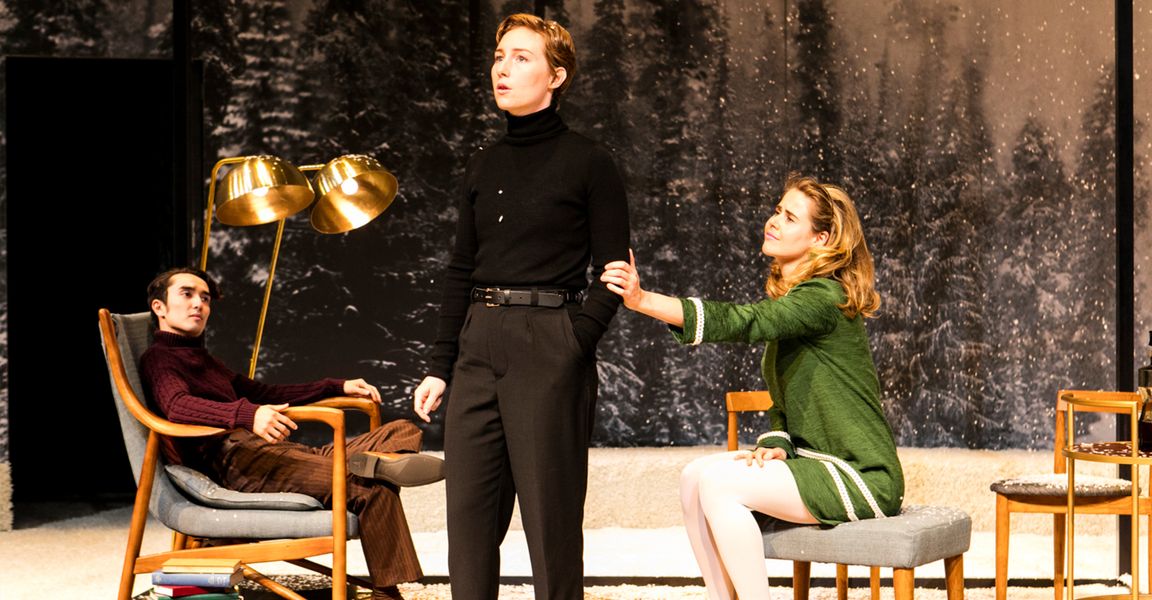
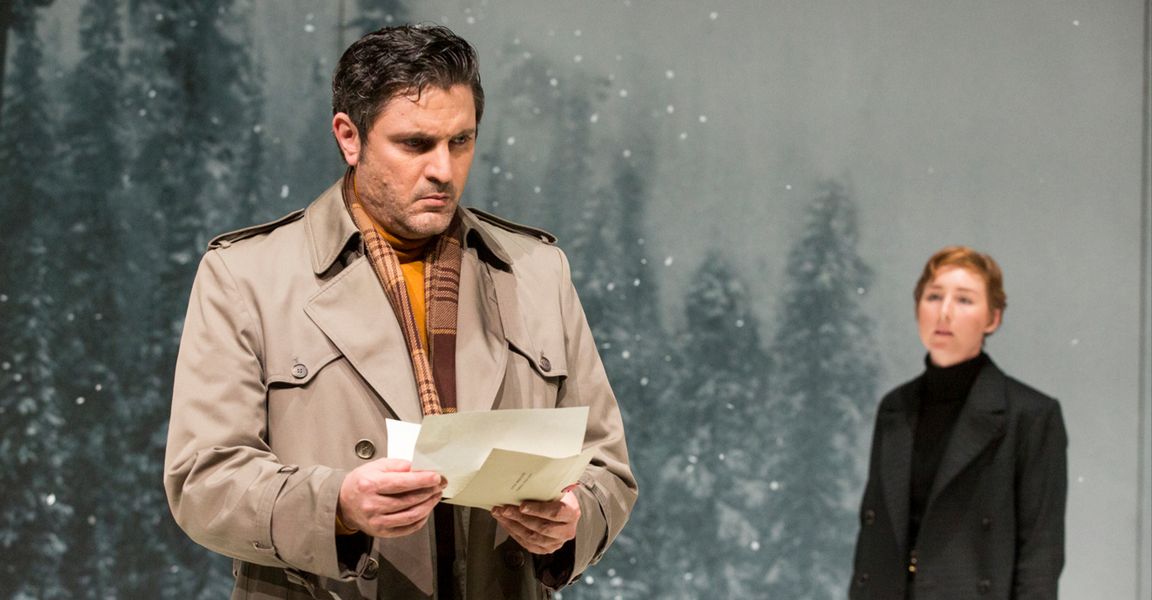

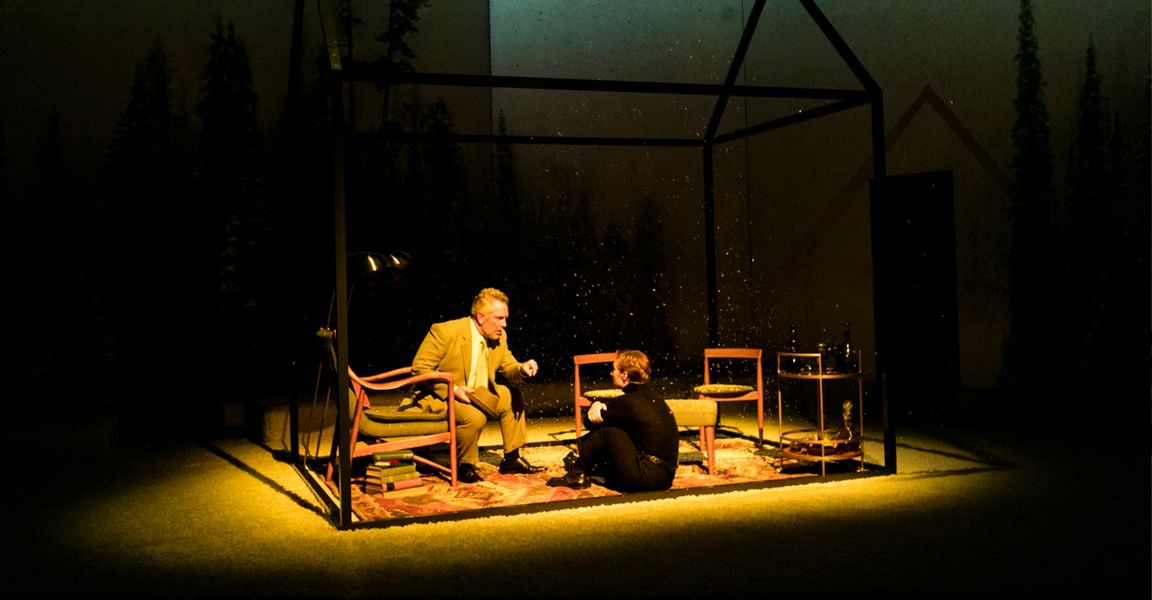
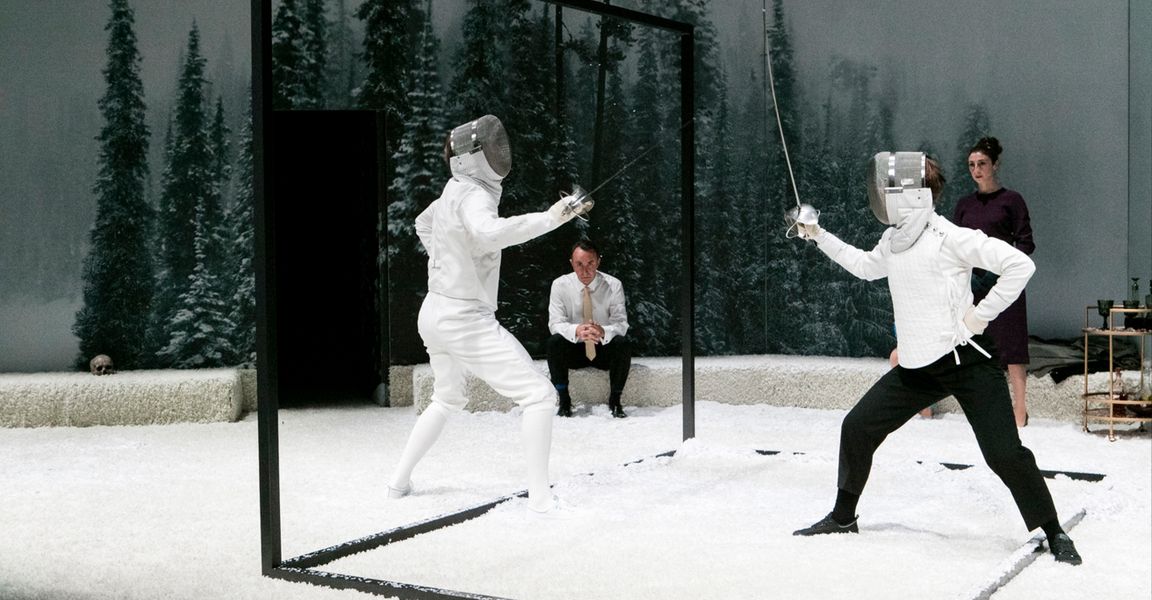
You may not realise it, but you’ve been quoting Hamlet all your life. Here are just a few of the everyday phrases that appear in Hamlet, and are still used in modern-day Australia:
Shuffle off this mortal coil
To thine own self be true
Woe is me
That it should come to this!
The lady doth protest too much
Neither a borrower nor a lender be
Though this be madness, yet there is a method in’t
Post-show conversation starters to make you look smart
THAT WAS THEN
It’s widely believed that, in the first ever performances of Hamlet (early 1600s in London) William Shakespeare himself played the ghost of Prince Hamlet’s father. He would have appeared on stage via a trap door in the Globe theatre.
Shakespeare was postmodern before the word was invented. A prime example was his fondness for staging a ‘play within a play’. He didn’t just do it in Hamlet, but also in A Midsummer Night’s Dream, Love’s Labours Lost and The Taming of the Shrew.
Hamlet’s impact extends far beyond the English-speaking world. Silent movie versions were released in France (1907) and Denmark (1910). A Hindi Hamlet movie came out in 1954, followed by a Russian movie in 1964. And a new German-language version premiered in Berlin in 2008, before touring worldwide for more than a decade (stopping off in Australia in 2010).
THIS IS NOW
Hamlet has spawned endless adaptations and reinterpretations in popular culture. One of the most recent was the star-studded movie Ophelia, featuring Daisy Ridley (of Star Wars fame), which re-spun the plot to give Ophelia more chutzpah and influence over her own destiny.
In this Bell Shakespeare production of Hamlet, the titular lead will be played by Harriet Gordon-Anderson. She follows in an illustrious line of women who have played Hamlet, including French actor Sarah Bernhardt (1899), Danish actor Asta Nielsen (1920), Australian actor Sophie Ross (2011), and British actor Maxine Peake (2014).
Hamlet is on at Sydney Opera House 4 March – 2 April, Canberra Theatre Centre 7–16 April and Arts Centre Melbourne 28 April – 14 May.